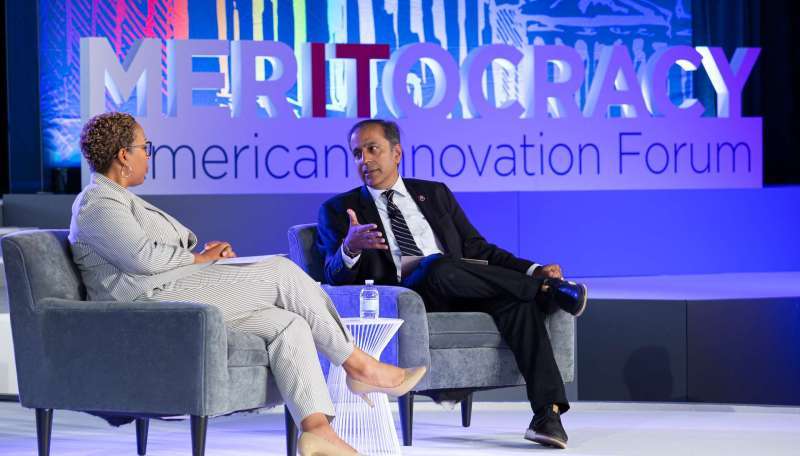
Rep. Raja Krishnamoorthi, D-Ill., championed the vital role that skills-based education can play to help start filling millions of job openings in United States tech-related sectors.
In an address at the MerITocracy American Innovation Forum on July 21, Rep. Krishnamoorthi keyed in on the burgeoning demand for workers to fill positions in the tech sector that don’t demand four-year college degrees to fill.
“There are multi-millions of jobs that have not been filled, because unfortunately, businesses can’t find the workers to take those jobs,” the congressman said. “We don’t have enough actuarial scientists or solar panel installers, and the list goes on and on. And that’s why we have, I think, around 10 million unfilled jobs in this economy.”
Rep. Krishnamoorthi talked about the need to destigmatize vocational educational programs that focus in on the technology sector in order to give Americans jobs that are both fulfilling and provide a path into the middle class.
“We’ve got to destigmatize skills-based education,” he said. “A lot of high school districts have actually created certification programs so that students can pursue a skill even as early as high school so that if they choose not to get a post-secondary education, they could still get a job and that’s really important,” he said.
Rep. Krishnamoorthi explained how Americans need to move away from the idea that four-year college degrees are a prerequisite for success, and that more Americans need to embrace the concept of life-long learning.
“But regardless of whether you go to four-year college, or any post-secondary path, everybody should be required to get a certification,” he said.
“If we can make sure that everybody does it, then it will be less stigmatized, and everyone will be better prepared for what’s to come,” he continued. “The second part of it is I do believe in lifelong learning. That’s something that we absolutely have to embrace as a country, regardless of what profession you’re in.”
One path to get there, the congressman said, is by investing in educational programs that extend high school for another two years so that students have the option in getting the training they need to get a skills-based job, or going on to pursue a traditional four-year degree.
“If we can give folks that additional flexibility and some resources to get those additional two years, and make it portable and actually useful, then again it emphasizes the reskilling, upskilling and retooling, but gives the flexibility so that people actually take advantage,” said Rep. Krishnamoorthi.
